Appendix E to Part 192 - Guidance on Determining High Consequence Areas and on Carrying out Requirements in the Integrity Management Rule
49:3.1.1.2.8.18.8.1.18 : Appendix E
Appendix E to Part 192 - Guidance on Determining High Consequence
Areas and on Carrying out Requirements in the Integrity Management
Rule I. Guidance on Determining a High Consequence Area
To determine which segments of an operator's transmission
pipeline system are covered for purposes of the integrity
management program requirements, an operator must identify the high
consequence areas. An operator must use method (1) or (2) from the
definition in § 192.903 to identify a high consequence area. An
operator may apply one method to its entire pipeline system, or an
operator may apply one method to individual portions of the
pipeline system. (Refer to figure E.I.A for a diagram of a high
consequence area).
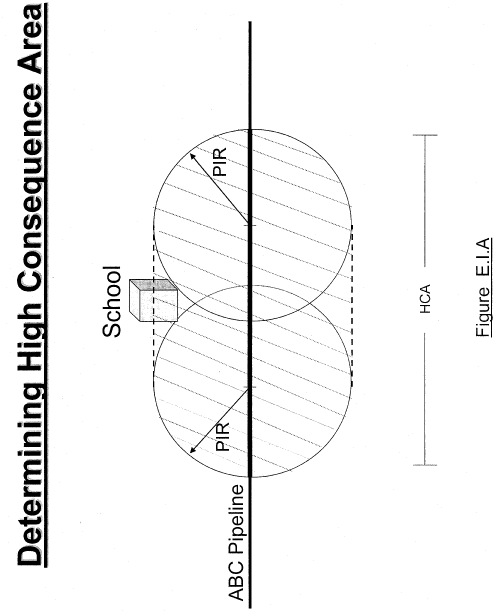
II.
Guidance on Assessment Methods and Additional Preventive and
Mitigative Measures for Transmission Pipelines
(a) Table E.II.1 gives guidance to help an operator implement
requirements on additional preventive and mitigative measures for
addressing time dependent and independent threats for a
transmission pipeline operating below 30% SMYS not in an HCA
(i.e. outside of potential impact circle) but located within
a Class 3 or Class 4 Location.
(b) Table E.II.2 gives guidance to help an operator implement
requirements on assessment methods for addressing time dependent
and independent threats for a transmission pipeline in an HCA.
(c) Table E.II.3 gives guidance on preventative & mitigative
measures addressing time dependent and independent threats for
transmission pipelines that operate below 30% SMYS, in HCAs.
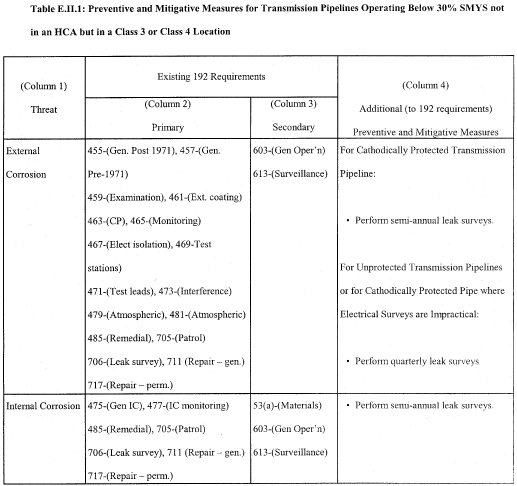
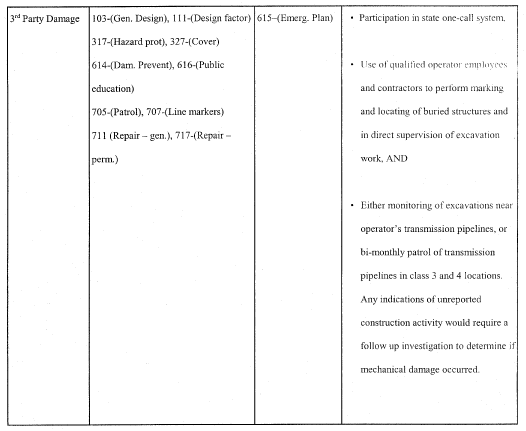
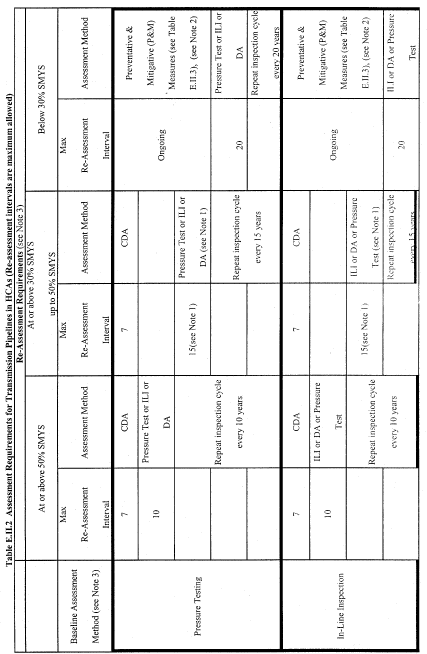
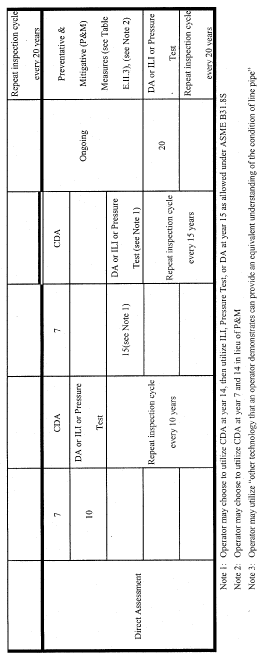
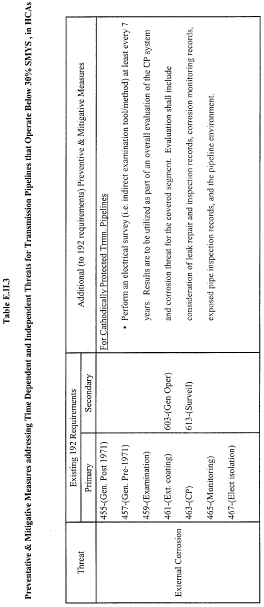
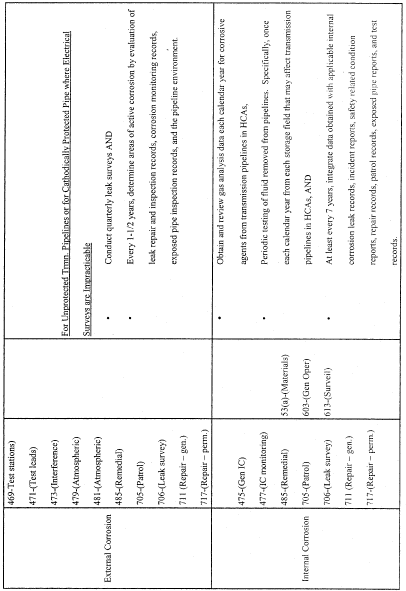
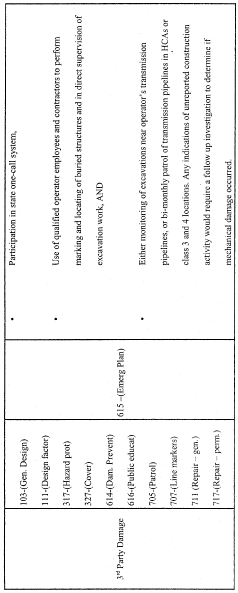
[Amdt. 192-95, 69
FR 18234, Apr. 6, 2004, as amended by Amdt. 192-95, May 26, 2004]